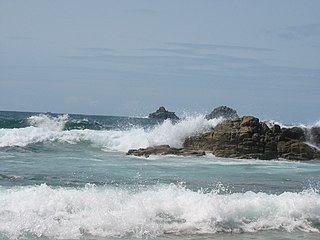Neil is a masculine name of Irish origin. The name is an anglicisation of the Irish Niall which is of disputed derivation. The Irish name may be derived from words meaning "cloud", "passionate", "victory", "honour" or "champion". As a surname, Neil is traced back to Niall of the Nine Hostages who was an Irish king and eponymous ancestor of the Uí Néill and MacNeil kindred. Most authorities cite the meaning of Neil in the context of a surname as meaning "champion".

Aoife is an Irish and Gaelic feminine given name. The name is probably derived from the Irish Gaelic aoibh, which means "beauty" or "radiance". It has been compared to the Gaulish name Esvios, which may be related to the tribal name Esuvii and the theonym Esus.
Fiona is a feminine given name of Gaelic origins. It means white or fair, while the Irish name Fíona means 'of wine', being the genitive of fíon 'wine'. It was coined by Scottish writer James Macpherson. Initially, the name was confined to Scotland but later it gained popularity in other countries, such as Liechtenstein, Switzerland, Australia, Germany and Canada.
Pádraig or Pádraic, also Pádhraig or Pádhraic, are Irish male given names deriving from the Latin Patricius, meaning "of the patrician class", introduced via the name of Saint Patrick. The name is often anglicised as its English language equivalent Patrick or phonetically, e.g. Pauric.
Siobhán is a female name of Irish origin. The most common anglicisations are Siobhan, Shavawn,Shevaun and Shivaun. A now uncommon spelling variant is Siubhán.
Cameron is a Scottish surname and thus somewhat common throughout the English-speaking world.
Máire is a feminine given name. It is the Irish language form of Maria, which was in turn a Latin form of the Greek names Μαριαμ (Mariam), and Μαρια (Maria), found in the New Testament. Both New Testament names were forms of the Hebrew name מִרְיָם (Miryam).
Niamh is an Irish feminine given name, anglicised as Neve, Nieve, Neave, Neavh or Neeve.

Patsy is a given name often used as a diminutive of the feminine given name Patricia or sometimes the masculine name Patrick, or occasionally other names containing the syllable "Pat". Among Italian Americans, it is often used as a pet name for Pasquale.
Cathal is a common given name in Ireland. The name is derived from two Celtic elements: the first, cath, means "battle"; the second element, val, means "rule". There is no feminine form of Cathal. The Gaelic name has several anglicised forms, such as Cathel, Cahal, Cahill and Kathel. It has also been anglicised as Charles, although this name is of an entirely different origin as it is derived from a Germanic element, karl, meaning "free man".

Kennedy is a unisex given name in the English language. The name is an Anglicised form of a masculine given name in the Irish language.

MurielMURE-ee-əl is a feminine given name in the English language.
Una is a feminine given name with various origins. As used by Edmund Spenser in The Faerie Queene, the name is derived from the Latin unus, meaning one. The Filipino word "una" meaning "first" is also derived from this Latin root. This is also the meaning implied for the given name of Star Trek character Una Chin-Riley, commonly called Number One.
Brendan is an Irish masculine given name in the English language. It is derived from the Gaelic name Breandán, which is in turn derived from the earlier Old Irish Brénainn. The Old Welsh breenhin is the root of the name, meaning prince or king. The mediaeval Latin form of the name, Brendanus, has also influenced the modern English and Irish forms. Variant spellings are Brendon and Brenden. In some cases it is possible that the given name Brandon is also a variant of Brendan.

Flora is a feminine given name of Latin origin meaning flower, ultimately derived from the Latin word flos, which had the genitive florus. Flora was a fertility goddess of flowers and springtime in Ancient Rome.
Murchadh is masculine given name of Irish origin, used in the Irish and Scottish Gaelic languages.
Maisie, also spelt Maisy or other minor variations, is a feminine given name. It is the pet form of the Scottish Gaelic name Mairead or the Irish name Mairéad, which are the equivalent of the English name Margaret. The -ie is a diminutive suffix used in Scottish as well as Northern England English.
Mairead, also spelt Maighread, is a feminine given name, the https://www.libraryireland.com/names/women/maighread-margaret.php equivalent of Margaret. The Irish form is spelt Máiréad or Mairéad, or Máighréad. Maisie is the pet form of Mairead.

Raven is a given name in the English language. While it may be given to boys and girls, it is more frequently a feminine name. In the United States of America the name has ranked among the top 1,000 names given to baby girls since 1977.
Gillespie is both a masculine given name and a surname in the English language. Variants include Gillaspie and Gillispie.





